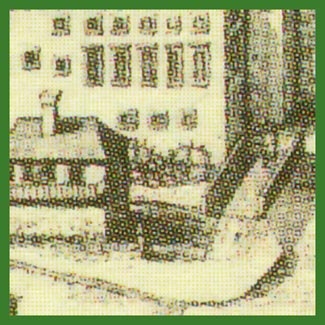-
Medieval Monasteries
Slovenia 2011.03.25
In issue: Stamp(s): 1
Printing: 4-colour offset
Issued in: sheets of 25 stamps
-
Perforation type: 14x13 ¼
Subject:
92 cents. The Carthusian monastery in Bistra near Vrhnika*
At closer look one can see the monastery watermill.Additional:
*Bistra is a small settlement in the Vrhnika Municipality in the Inner Carniola region of Slovenia.
It is best known for the Bistra Castle or The Carthusian monastery in Bistra near Vrhnika was established by the Carinthian Duke Bernard between 1255 and 1260. Its layout was similar to the Carthusian monasteries in Žiče and Jurklošter. Bernard’s son Ulrik bestowed a wealth of lands to the monastery, from Podpeč to Rakitna, Cerknica and Logatec, and it also received major bequests from the Aquileian patriarchs, Austrian dukes and the Princes of Celje. The monastery served passenger and cargo traffic along the Ljubljanica River between Vrhnika and Ljubljana, and was exempted from all duties on goods. The monastery was severely damaged by fires in 1382 and 1463, and was therefore rebuilt. During the Reformation the Prior Gregor maintained good connections with the Ljubljana Protestants and supported Trubar’s literary efforts. Of the monastery’s original layout, three tracts of the Gothic cloisters from the mid 15th century are preserved. The monastery section was remodelled in the 17th century and the Baroque arcades were added.A group of preserved remains of fortifications are located near the former monastery, and the manor house includes the Chapel of St. Joseph from the time of the Baroque renovations with ornate stucco decoration, and frescoes by Anton Cebej from the second half of the 18th century. The monastery was dissolved in 1782, and the monastery church was torn down in 1808.
Since 1947 the former monastery has housed a museum of forestry, wood processing and hunting, which later became a part of the Technical Museum of Slovenia. The Technical Museum opened its first collections in 1953, and in the decades that followed expanded to its current extent and appearance.
A famous illuminated manuscript of a text by St. Augustine, “De civitate Dei”, was created in 1347, the work of the Carthusian monk Nicolaus. It is now kept at the National and University Library in Ljubljana.
Topics: Watermills



2011-1s-logo.jpg)
